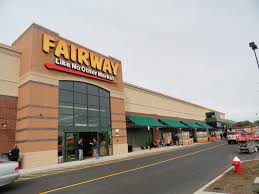We endeavor to inform our readers as to relevant news pertaining to our region. One of the Fairway grocery stores located in Rockland County closed yesterday. This store is part of a chain comprising approximately fifteen stores. As reported , the tenant was in year six of its commercial lease. Most commercial leases are likely to be for a term of at least ten years, with options to renew. As such, the tenant likely is vacating before the end of its lease term. Although this author has not personally reviewed the lease at issue, this post will discuss the provisions customarily contained in such commercial leases and the issues raised when the tenant leaves before the end of the lease.
Fairway represented that it decided to close this particular location not because of the overall financial health of its company. Other anchor tenants at the shopping center had already closed, which caused decreased customer volume for the grocery store that adversely affected its revenues.
Landlords typically negotiate the following provisions in leases. The rent due escalates through the end of the lease and the tenant forfeits its security deposit if the tenant vacates early. In order to avoid such costly penalties, the tenant may try to find a replacement tenant to whom the lease can be assigned. When the lease is originally negotiated, an experienced attorney will negotiate a liberal assignment clause so that the tenant can more readily exit the lease if the business is not successful at the location. That way, the landlord will be required to accept another tenant located by the tenant that is leaving the shopping center.
In addition, a landlord may be able to obtain reimbursement of its costs, such as costs to build the leased premises specifically for this tenant and pro-rated brokerage commission. The lease may require the tenant to restore the premises to its original state (a “plain vanilla box”) when leaving the premises, so that it can be more easily rented to another tenant. Details such as whether the landlord or tenant owns the fixtures in the store become relevant in this case. In a grocery store, lighting, shelves and the like are affixed to the walls, floors and ceilings. The lease will identify which party owns these fixtures. When a tenant has another location, it will want to take the fixtures to use in one of its other locations, but the lease may dictate that they belong to the landlord.
Many commercial leases have been personally guaranteed, meaning that an individual promises to pay the financial obligations of the corporate or other entity tenant if the tenant cannot meet such obligations. When a tenant vacates before the end of the lease, it is not uncommon for the guarantor to be required to continue to pay rent for a specific number of months thereafter.
Other tenants at the shopping center will also be affected when another tenant leaves. Such tenants may wish to ask their attorneys to negotiate a lease modification due to changing conditions that make it more difficult to operate successfully. Also, another tenant may need to be located that does not violate non-compete clause that may be in the remaining tenants’ leases. For instance, there may be an Italian restaurant in the shopping center whose lease prohibits the landlord from renting to another restaurant serving Italian food in the same shopping center.
We are available to consult parties to commercial leases in order to interpret provisions affecting early lease terminations and other concerns.
 New York Real Estate Lawyers Blog
New York Real Estate Lawyers Blog


